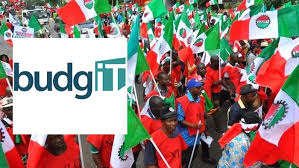A recent report by BudgIT, a Nigerian civic organization, has shed light on the fiscal disparities among Nigeria’s 36 states, challenging the feasibility of a uniform minimum wage implementation across the country. The “Wage Bill of States” report analyzes the current minimum wage controversy, focusing on states’ revenue capacity, wage bills, and fiscal imbalances.
BudgIT’s research reveals a significant horizontal fiscal imbalance among states. In 2023, the 36 states collectively earned N7.85 trillion, but the distribution was highly skewed. Lagos state alone accounted for 15% of this total, earning N1.18 trillion. The top eight states, including Lagos, Delta, Rivers, Akwa Ibom, Bayelsa, Oyo, Ogun, and Ondo, claimed 51% of the cumulative revenue.
The report highlights stark differences in states’ expenditure on personnel costs. Kano state spent the highest proportion of its revenue on personnel costs at 40.91%, followed by Imo at 37.64% and Adamawa at 37.32%. These figures underscore the varying financial capacities of states to meet wage obligations.
BudgIT argues that these economic disparities necessitate a more nuanced approach to minimum wage implementation.
The organization suggests that each state should negotiate its minimum wage based on its specific economic realities, considering factors such as wage bills and average monthly salaries.
The report also provides insights into the states’ 2023 personnel costs. Excluding Taraba, the total personnel expenditure for the year stood at N1.94 trillion, covering 1.16 million workers. The average monthly personnel cost per state employee was N4.74 billion.
This analysis by BudgIT brings to the forefront the complex economic landscape of Nigeria’s states.
It challenges policymakers to consider these fiscal imbalances when formulating wage policies, suggesting that a one-size-fits-all approach to minimum wage may not be sustainable given the diverse economic conditions across the country.

























